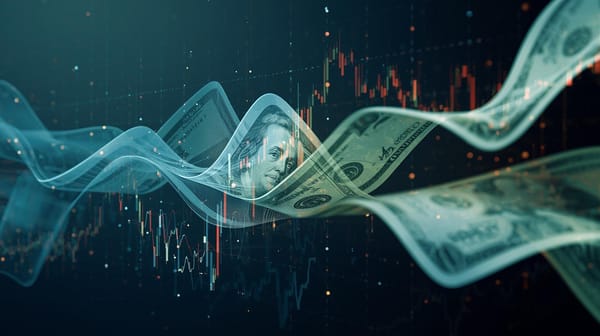US consumer confidence rises with easing inflation and stock market gains

Consumer Confidence Soars
Consumer confidence soars as inflation fears ease and stock prices surge—an encouraging development for the US economy. When consumers feel optimistic, they tend to spend more, boosting economic activity. This elevated sense of confidence hasn't happened in a vacuum. Instead, it's driven by multiple factors, including easing inflation concerns, which plays a significant role in shaping a positive economic outlook.
Several key economic elements, such as strong employment figures, favorable investment trends, and supply chain stability, contribute to this optimistic environment. Understanding these drivers is essential to grasping how consumer behavior influences economic growth.
The Rise in Consumer Confidence
Recent data suggests a statistical uptick in consumer confidence, signaling an ongoing economic recovery. But what does "consumer confidence" really mean? It refers to how optimistic consumers are about their financial situation and the economy's trajectory.
- Enhanced consumer sentiment can lead to increased spending, propelling economic growth.
- This optimism often correlates with improvements in financial stability and a market rebound.
- As confidence rises, so does the propensity for consumers to engage actively in economic activities, creating a positive feedback loop.
The current economic climate shows strong parallels between consumer sentiment and economic expansion. As consumers grow more confident, their willingness to spend strengthens the economy as a whole.
Easing Inflation Fears and Its Impact
Inflation fears, which concern the rate at which prices rise and erode purchasing power, are slowly subsiding. Reduced inflation is paving the way for more stable price expectations, encouraging consumer spending and financial optimism.
- The Federal Reserve plays a critical role in maintaining price stability, often using interest rate adjustments as a tool to manage inflation.
- An easing inflation rate, an essential economic indicator, significantly influences everyday consumer decisions.
- Low inflation rates can boost consumers' purchasing power, impacting their spending patterns favorably.
Reduced inflation fears contribute to a more stable environment for consumers. With the potential for inflation kept in check, consumer confidence and spending tend to strengthen, further fueling economic growth.

The Influence of Stock Prices on Consumer Sentiment
Recent gains in stock prices are also positively impacting consumer wealth and sentiment. When stock markets perform well, consumers perceive an increase in their financial assets, often boosting their confidence.
- Recent trends show improved financial forecasts contributing to heightened consumer confidence.
- Disposable income, or the income left after taxes, often rises in tandem with stock market upturns.
- A buoyant stock market reflects well on the broader US economy, signaling robust economic health.
The correlation between stock prices and consumer sentiment cannot be overstated. Market gains enhance perceptions of wealth, which in turn feeds into a cyclical cycle of spending and confidence that benefits the economy broadly.

Economic Indicators and Their Role in Building Confidence
Key economic indicators, such as employment rates, advance real retail sales, and disposable income, play significant roles in shaping consumer confidence. Understanding these metrics is crucial for grasping the complex dynamics of economic sentiment.
- Employment rates, representing the percentage of the labor force that is employed, serve as a clear sign of economic stability.
- Improvements in the supply chain can also lead to economic growth and enhance consumer confidence.
- Market trends within financial markets, stabilized due to improving economic conditions, further contribute to the strengthening economy.
As these indicators continue to improve, they support a climate of increased consumer confidence, showcasing an optimistic view of economic conditions.
Looking Ahead: Economic Outlook and Market Trends
The economic outlook appears to be on an upward trajectory, with anticipated growth in investment and potential shifts in interest rates. These factors will influence future economic conditions and consumer sentiment.
- Changes in real retail food services sales point to a maturing business cycle and broader economic recovery.
- Potential improvements in household income could further enhance consumer sentiment, driving economic growth.
- As investment growth bolsters financial stability, the economic forecast points towards continued consumer confidence.
Looking ahead, the evolving market trends suggest sustained growth, supported by a stable foundation of consumer optimism and favorable economic indicators.
A Brighter Economic Horizon
In summary, the narrative of rising consumer confidence amidst easing inflation and robust stock market gains is a promising sign for the US economy. The interconnectedness of consumer sentiment, economic stability, and growth prospects paints a positive picture of the economic outlook moving forward. As we monitor economic indicators and financial markets vigilantly, they serve as cornerstones of sustained consumer confidence, ensuring a bright future for the economy.




